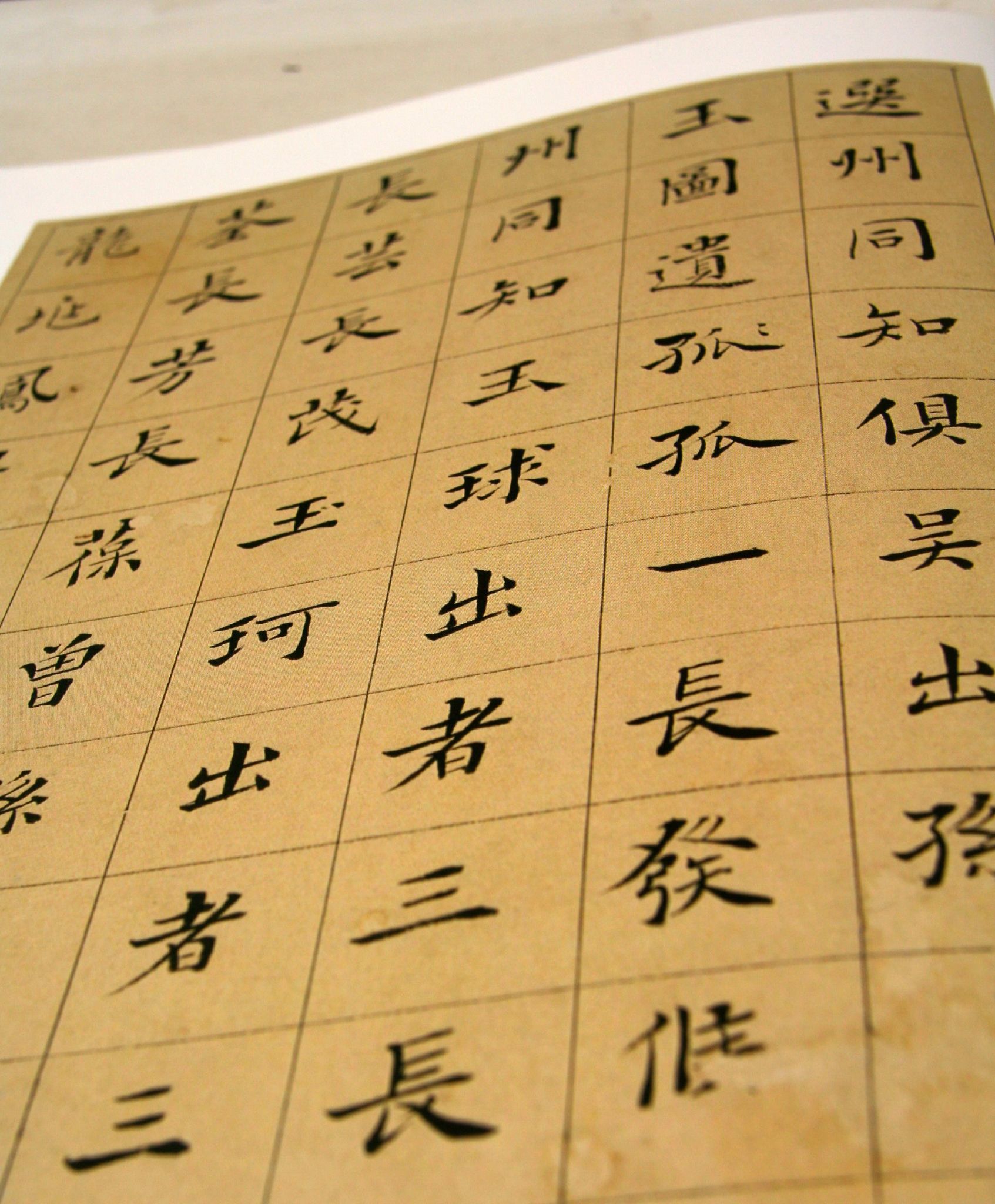Why I Decided to Start Learning Chinese (again)
My Backstory
I am a second generation Chinese female in my mid-20s. I was born in Beijing, but moved to the USA when I was around 3 years old. My parents are Chinese and speak Mandarin almost exclusively at home. I would consider myself a conversational speaker, being mostly exposed to "kitchen talk," with enough vocabulary to get around if stranded alone in China. Not fluent by any means, and I understand much more Mandarin when spoken at me than I am able to produce myself. This is not uncommon, since passive recognition is naturally easier than active recall production. However, my great failing is that I am almost completely illiterate. I cannot read or write. And this is the story of why I choose to remedy that problem.
As a child, my brother and I were both enrolled in Chinese school held every Saturday. We reluctantly studied just enough Chinese to get by in class every week, and promptly forgot it all the subsequent week. As a child, it is difficult to appreciate the intricacies of a language as complex as Chinese, especially when you are expected to do well in regular American school, then give up your weekends for additional Chinese school. None of your friends had to go to school on the weekends, and it just wasn't fair! Or so I thought. And so I skated by in Chinese school, only cramming for weekly quizzes on the car ride to school, barely passing, and simply not caring. I attended Chinese school for several years, and did not make any strong effort to retain the material. I eventually got to the point where I quit Chinese school completely. I forgot everything I learned in those few years, and simply did not care. I wasted the very limited window of opportunity where the plasticity of a child's brain is most amenable to learning and retaining new languages. Language study would never be as easy as it could have been had I stuck with it then. But I suppose you never realize your unique opportunities until you have let them go to waste.
The Change
I did well in regular American school, did well in my undergraduate university, got into a prestigious medical school, and started doing research in a difficult dual degree program. As I got older, I realized what an advantage being able to read, write, and speak Chinese would be. China is becoming more of a global power, Chinese is being used more and more in business, and knowing Chinese may give one an advantage in the types of clients (or patients) one is able to comfortably interact with. And more than just the utility side, I felt sad somehow that I had given something up of my Chinese heritage. I am still able to understand spoken Mandarin, and can converse casually on non-specialized topics.
My Goals
However, I wanted to learn to read (and possibly write) Chinese.
My ultimate goal is to be able to read native Chinese newspapers and fiction novels at a slow to normal speed, without the need for looking up words in a dictionary.
I have decided to prioritize reading. (As I mentioned before, I am satisfied with my current conversational level of Mandarin, and will not be focusing on listening or speaking skills. I could, however, benefit from additional speaking practice with a partner... but that will have to wait.)
I will not be focusing on learning to write Chinese characters at this point. In the future, when my reading skills have progressed satisfactorily, I may begin writing. However, current technology for writing characters digitally using pinyin input is satisfactory for now.
I am a little disappointed in myself, since I feel that I could have had a much stronger background, coming from a Mandarin speaking family and being exposed to Chinese as a child. I could have learned a lot more during my window of natural language acquisition. But since I didn't, I will just have to work harder now to make up for it.
What prompted you to start learning Chinese? Have you had any opportunities that you missed taking advantage of?
Recommended Resources:

Chinese Language: Fact and Fantasy
Not a Learning book per se, but a really nice linguistic analysis of the Chinese Language. He explains a lot of the misconceptions that people have about the Chinses language, and details the Chinese writing system from ancient times to modern.

ABC English-Chinese, Chinese-English Dictionary (ABC Chinese Dictionary Series)
A really great dictionary. If you are beginning, you will probably want a paper dictionary. It comes in handy, even in this era of electronic dictionaries. And the ABC ECCE is one of the best. It has both English and Chinese lookup.

Chinese Characters: A Genealogy and Dictionary (English and Mandarin Chinese Edition)
Simply the best geneological-etymological condensation for the modern reader. Harbaugh breaks over 4000 characters down into 200 simple ideographs from which each family of characters branches off. This is more for serious students who are interested in the entymology of characters, but is immensely helpful in learning word concepts and meaning.

This book presents memorizing characters with short mnemonics and stories to help you learn. This may be good for beginner learners, but I prefer learning the true entymologies (see Harbaugh's book above). This book does not teach pronunciation, so you will have to work on that separately.

Another book with stories and pictures to help you learn and memorize Chinese characters. This mnemonic device method is very popular, and gives rapid results for the beginner.

Beginning Chinese Reader (Beginning Chinese Reader, Part I)
A DeFrancis reader for the beginner. Good if you prefer to have more structured lessons, presenting about 10 new characters per lession (more as you progress). Nice to have if you are self studying, but want to follow a specific teaching plan.

